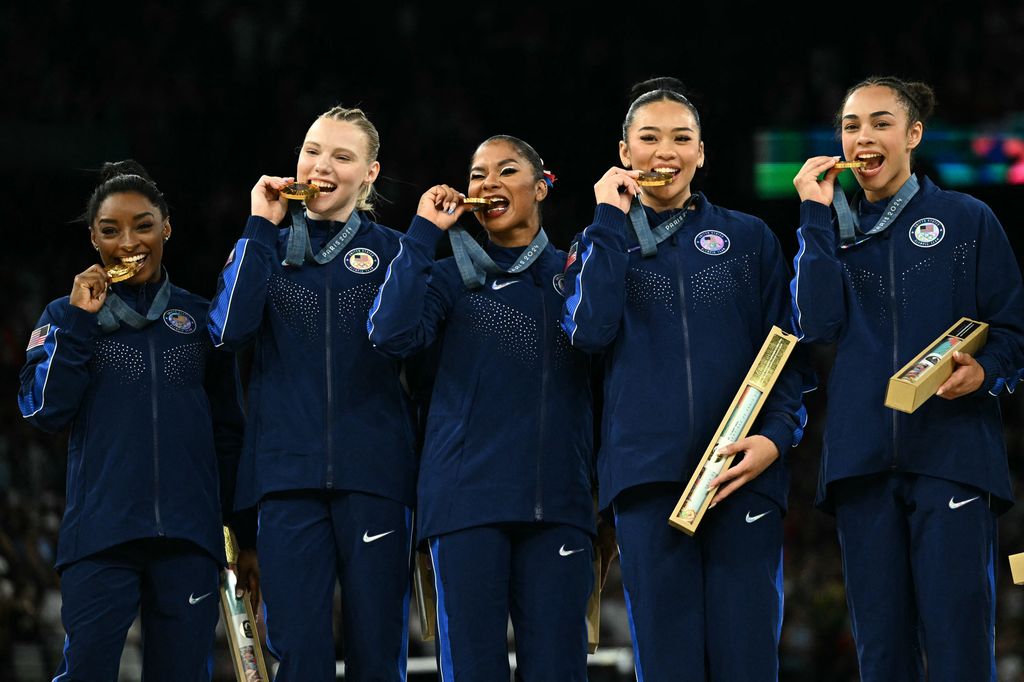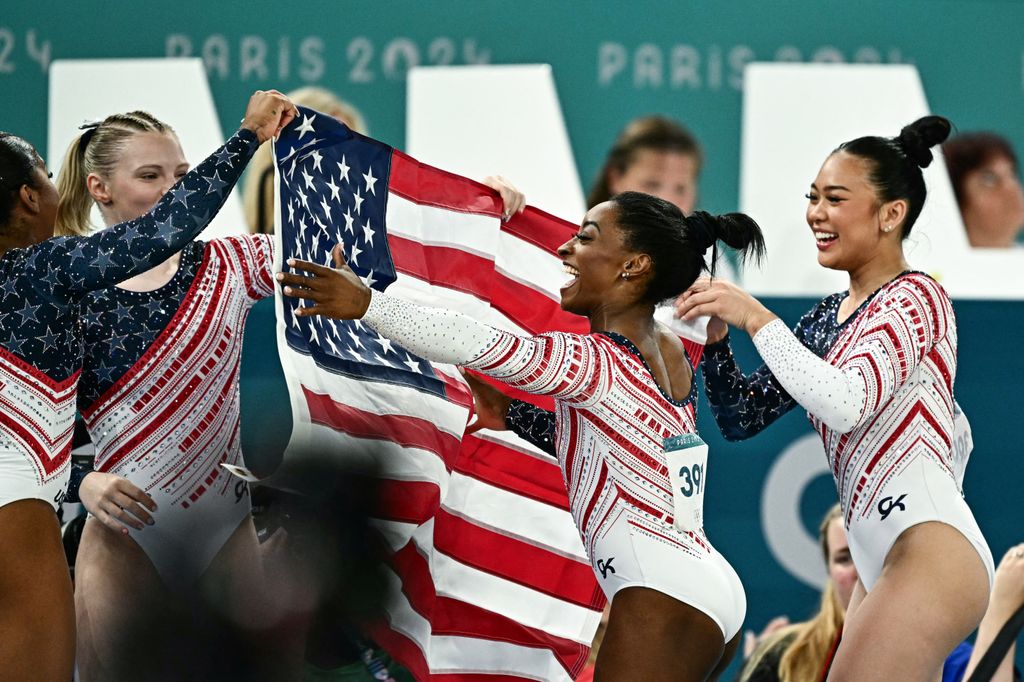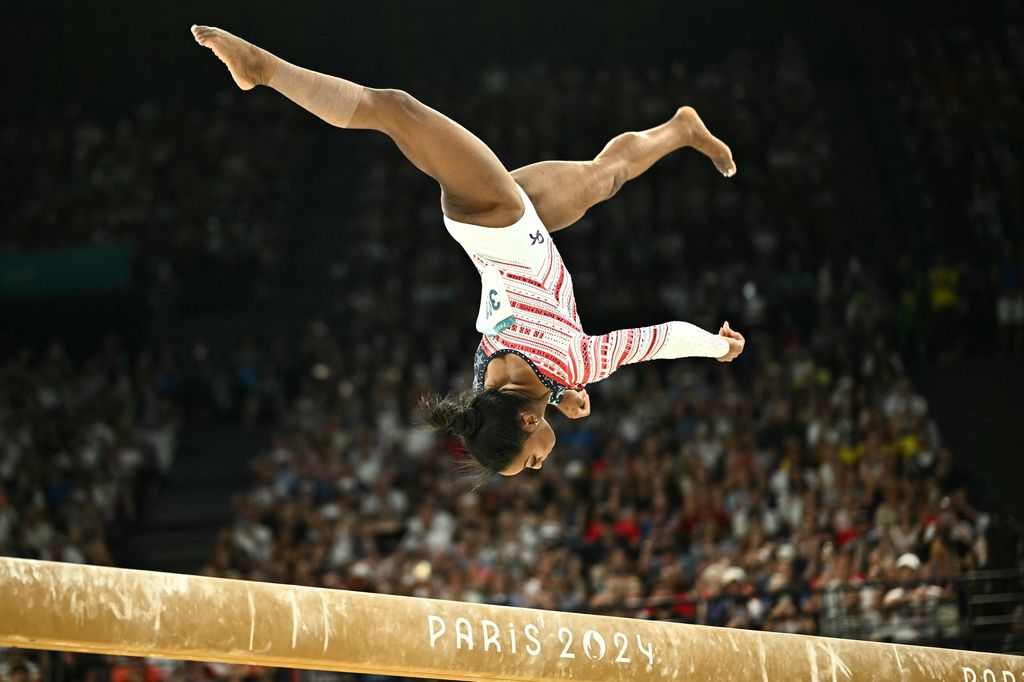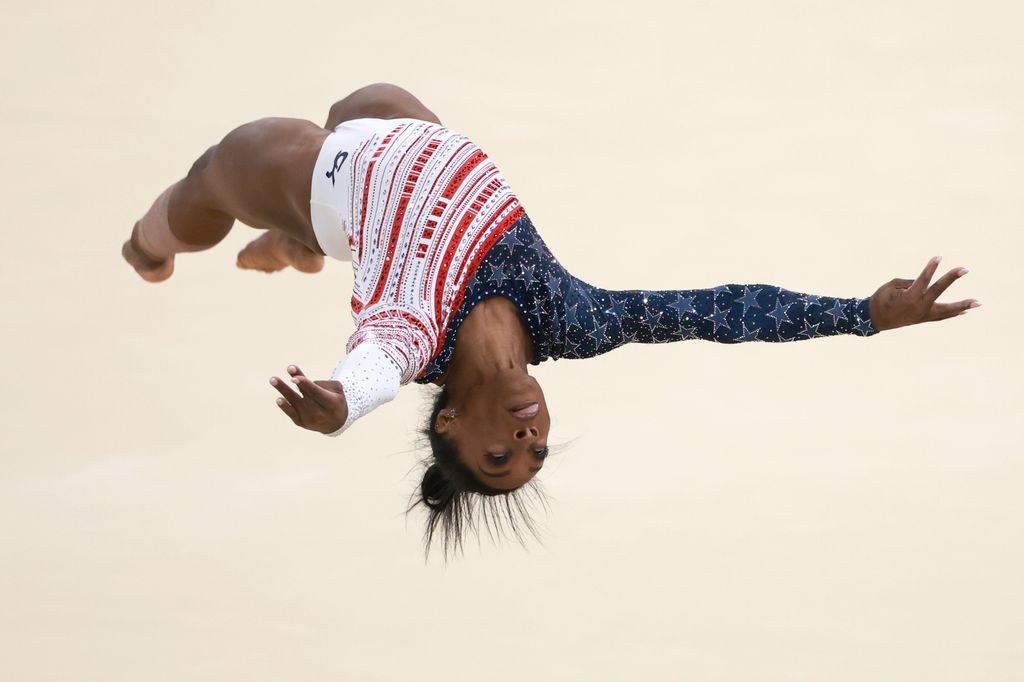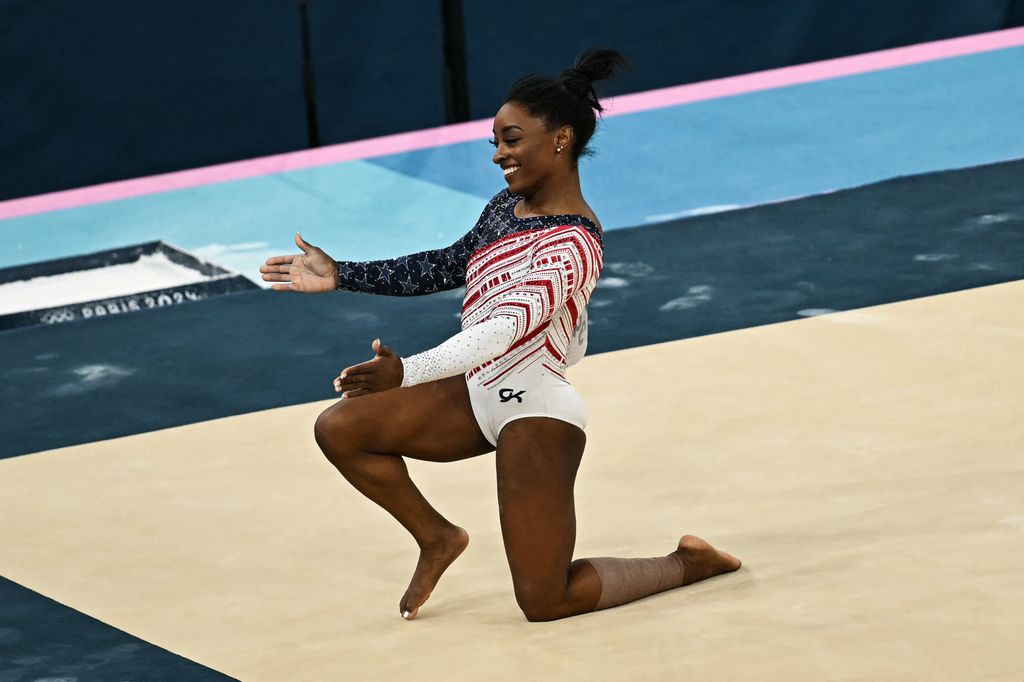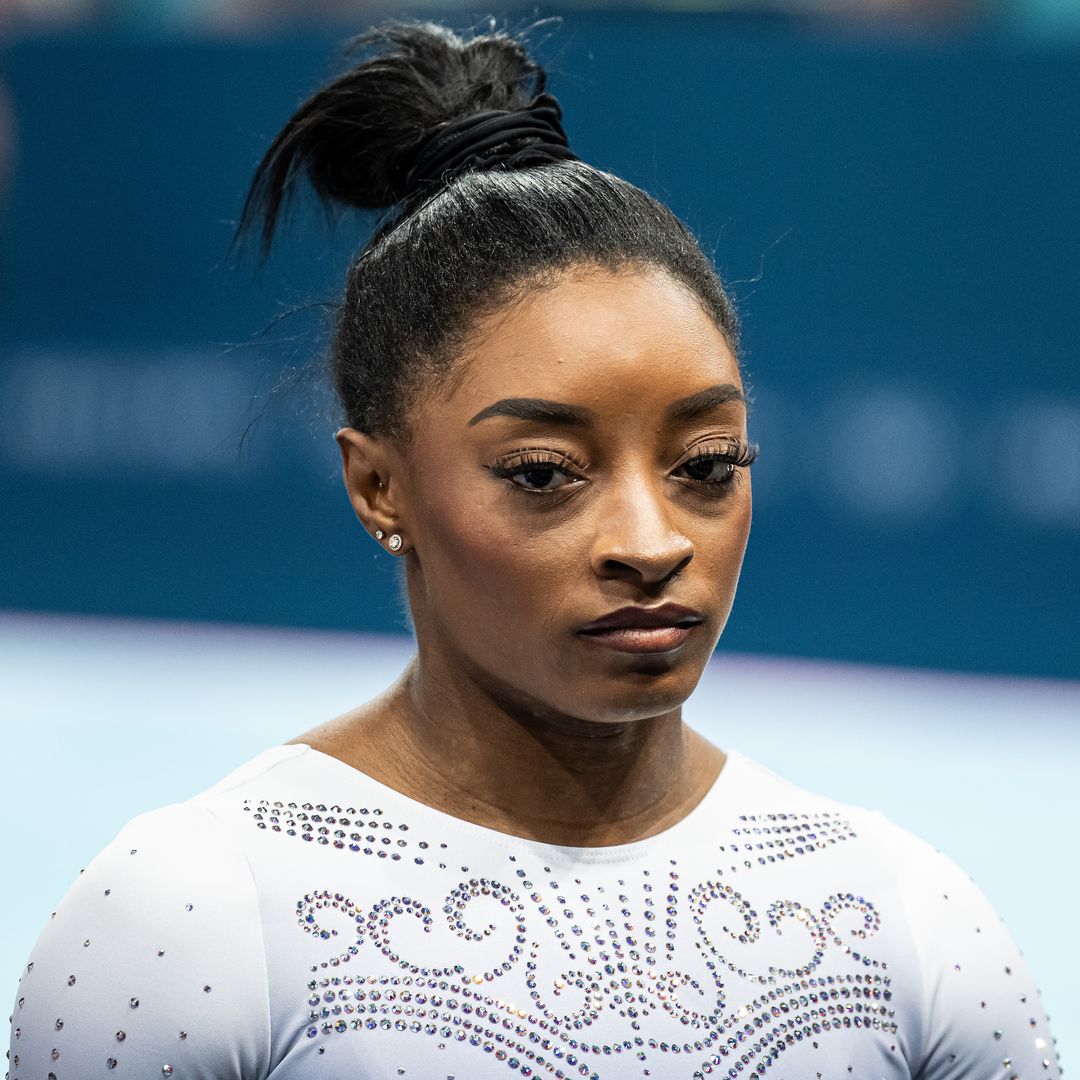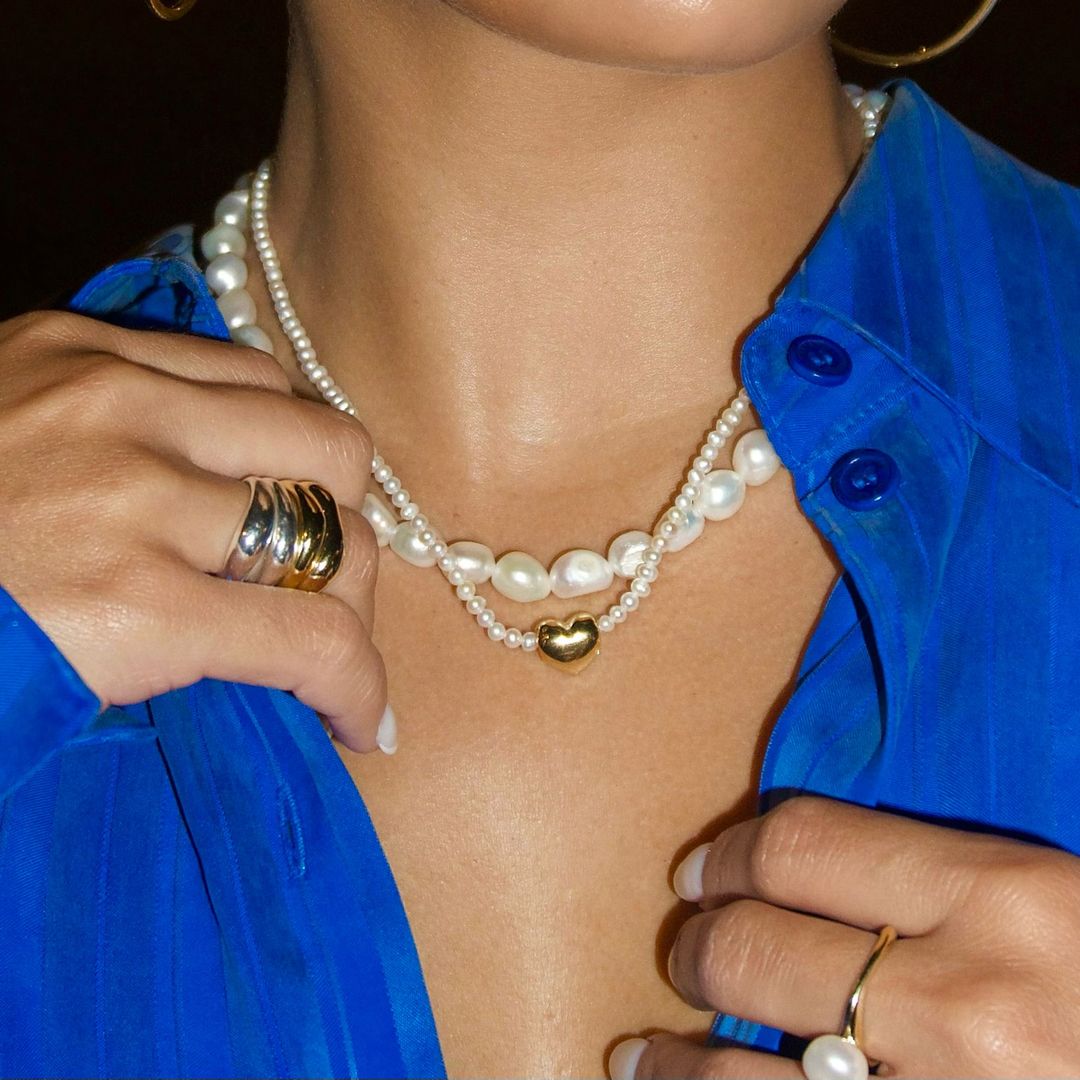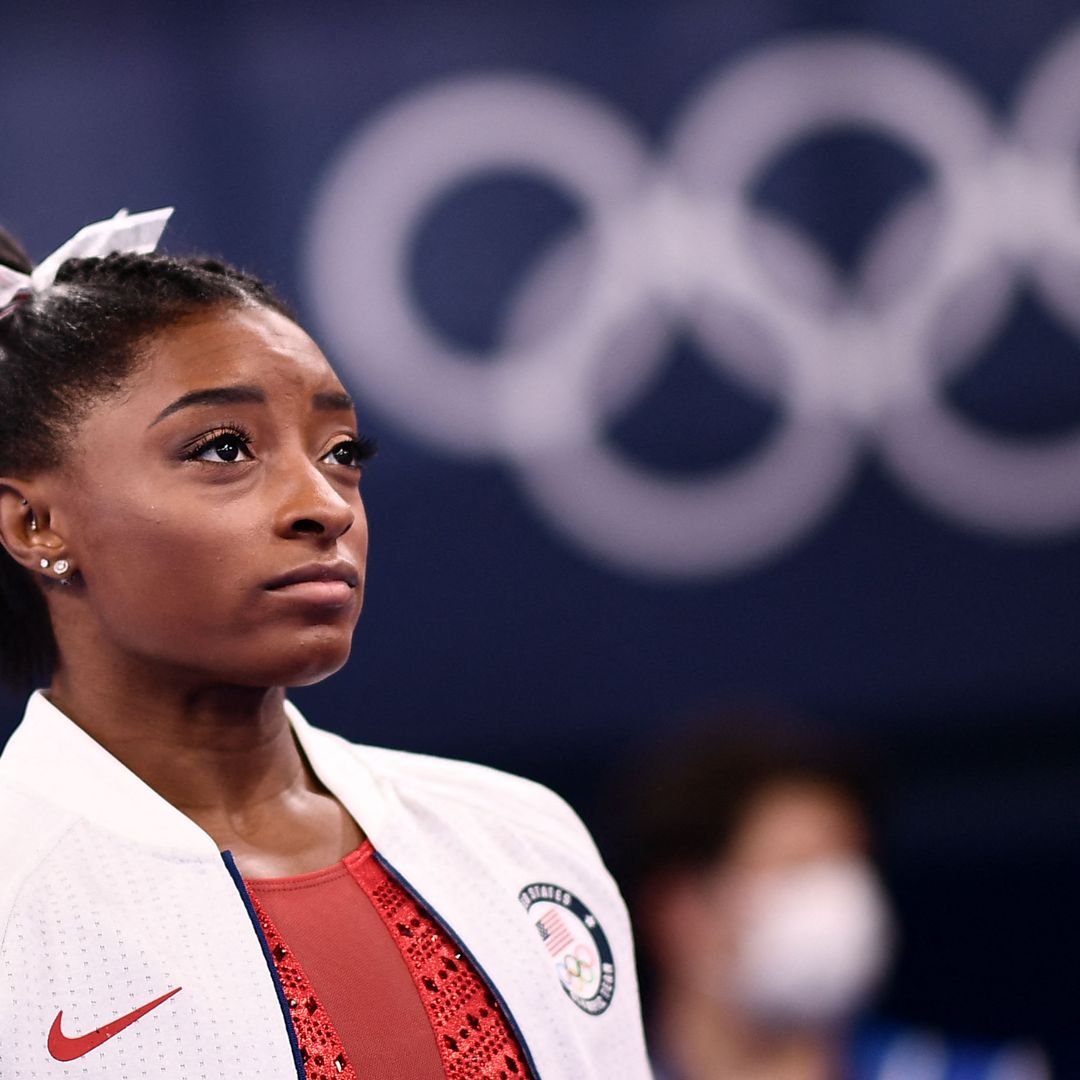Simone Biles has won her first gold medal of the 2024 Olympics, helping Team US win the all-around team event after scoring 14.666 on the floor.
Simone is the most decorated gymnast of all time, and now holds the US record for the most Olympic medals in gymnastics history; she has five gold medals, one silver and one bronze, and has won 20 World Championship gold medals.
As the scores were read out, the stadium in Paris rang out in cheers, and Simone and her teammates - Jade Carey, Jordan Chiles, Hezly Rivera and Sunisa Lee - rushed the stage with the American flag, unable to keep the smiles and tears away.
Simone was the final athlete to perform on the day in 2024; she ended her routine with a full-twisting front flip through to a double-double, before following it up with her original namesake skill, a double layout with a half twist.
She performed another double layout to finish, and despite falling outside of the floor lines twice the score was high enough to overtake Team GB, who had been sitting in third place.
Their total was 171.296, a solid six points above second place finishers Italy; Brazil came third winning its first Olympic medal in the sport ever.
The women's team have been a dominant force in gymnastics but it was their first Gold since Simone withdrew from the competition in 2021. The team went on to win silver behind Russia; they had won gold in 2016 and 2012.
Simone's return to the sport came after her shocking decision in 2021 to withdraw from the competition, for the sake of her mental health; a two-year hiatus followed.
A statement on the USA Gymnastics' Twitter account read at the time: "After further medical evaluation, Simone Biles has withdrawn from the final individual all-around competition at the Tokyo Olympic Games, in order to focus on her mental health."
STAR REELS
Part of Simone's struggles with her mental health was a condition called "the twisties".
According to the Cleveland Clinic, twisties are a type of mental block, "a brain-body disconnect that causes gymnasts to lose their sense of space on flips."
Sports psychologist Matthew Sacco explained: "The brain and body are no longer communicating efficiently, and that causes a gymnast to lose sense of where their body is in space while they're in the air."


